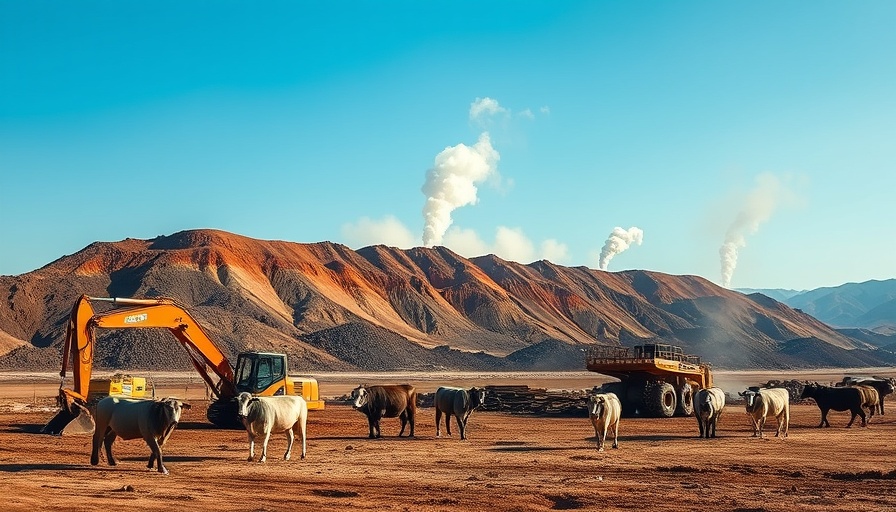
The Environmental Cost of Oil Exploration in DRC
The Democratic Republic of the Congo (DRC) is facing a critical juncture in its environmental policy as over half of its land is set to be auctioned for oil and gas drilling. This move threatens to disrupt not only the biodiversity of the region but also the livelihoods of millions of Congolese people. According to a recent report by Earth Insight, the proposed drilling will affect approximately 64% of the DRC's pristine forests, putting endangered species, particularly mountain and eastern lowland gorillas, at even greater risk.
The Biodiversity Wealth at Stake
The DRC houses the second-largest tropical rainforest on Earth, rich with unique flora and fauna that cannot be found anywhere else. With species ranging from great apes to endemic birds, these ecosystems also contribute significantly to global carbon storage through their vast peatlands, particularly the Cuvette Centrale peatlands. This area alone is crucial as it stores an estimated 30 gigatons of carbon, playing a vital role in mitigating climate change.
Local Communities: Balancing Act between Progress and Preservation
At the heart of this conflict lies the impact on local and Indigenous communities. The area earmarked for drilling supports around 39 million citizens, many of whom rely on the forest for food, shelter, and cultural identity. These communities are now vocalizing their concerns, with campaigners like Pascal Mirindi advocating for a sustainable future, highlighting the contradictions of promoting conservation initiatives like the Kivu-Kinshasa Green Corridor while simultaneously jeopardizing these efforts through oil extraction.
Future of Conservation: Opportunities and Threats
As the world grapples with climate change, the DRC's approach to its natural resources will have broader implications for global environmental health. The ongoing auction of oil blocks intersects with key biodiversity areas, therefore risking the integrity of numerous conservation efforts. If the government prioritizes short-term financial gain from oil revenue over long-term ecological sustainability, the consequences could extend beyond the borders of the DRC, potentially affecting global ecological balance and conservation efforts.
The Global Perspective: Why It Matters
Globally, the fight for sustainable development in regions rich in natural resources has become increasingly crucial. The situation in the DRC is a stark reminder of the challenges faced when trying to balance economic development and ecological preservation. Oil drilling could provide temporary economic benefits; however, these actions often lead to long-lasting damage to the environment that costs much more to rectify in the future.
The DRC's current path raises fundamental questions about the logic and ethics surrounding resource management. Can sustainable practices be enacted that simultaneously support economic growth and preserve ecological treasures? The answer to this question may lie in a renewed commitment to conservation, respecting the rights of local communities, and obsessively reinforcing policies that prioritize ecological integrity.
 Add Row
Add Row  Add
Add 




Write A Comment